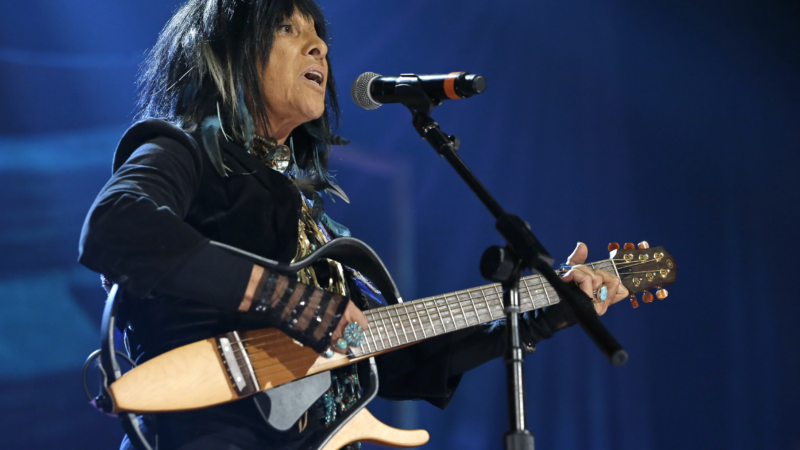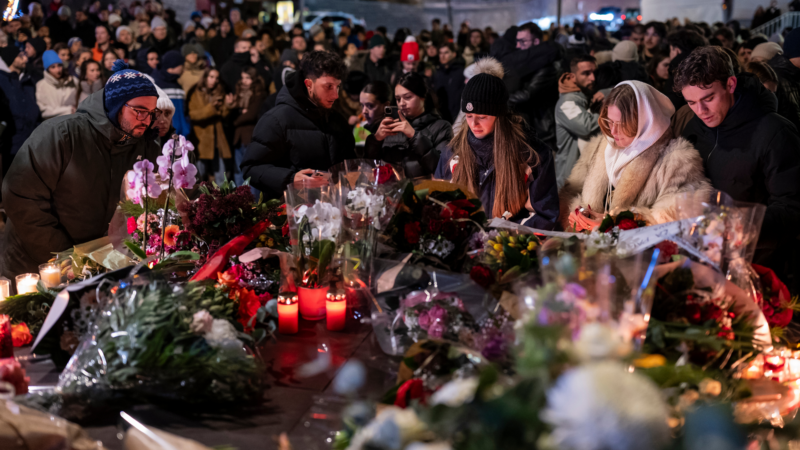Buffy Sainte-Marie stripped of prestigious Canadian honor
The Canadian government has stripped Buffy Sainte-Marie of one of the country’s highest honors, after a 2023 news report found she had fabricated claims of Indigenous ancestry.
The Oscar-winning singer’s Order of Canada termination was publicly shared on Saturday in the Canadian government’s official online publication, the Canada Gazette. Canada’s governor general, Mary Simon, signed off on the action on Jan. 3, according to the notice.
In an email to NPR, a representative from Simon’s office said the governor general “does not comment on the specifics of termination cases.”
But the government’s termination policy states its decisions are, “based on evidence and guided by the principle of fairness and shall only be made after the Council has ascertained the facts it considers relevant.”
Best known for her 1964 anti-war anthem “Universal Soldier,” and for co-writing the Academy Award-winning song “Up Where We Belong,” Sainte-Marie received the Order of Canada in 1997 for her services to Indigenous Canadians. According to the entry about her in the Canadian Encylopedia, Sainte-Marie has identified as Cree from the Piapot First Nation in Saskatchewan since the early 1960s and has long been recognized as a major Indigenous artist.
The singer told NPR in 1988 that she did not see other folk musicians addressing Indigenous issues when she first got into the music business. “It was not only my contribution to an ignorant world of people who might like to know, but it was also a real attempt to change things, to bridge the gap between Indian people and the rest of the world,” Sainte-Marie said.
But a Canadian Broadcasting Corporation investigation in 2023 shed doubt on the singer’s claims of Indigenous ancestry. The team said it tracked down the performer’s American birth certificate, which stated she was born Beverly Jean Santamaria, in Massachusetts, to white parents.
Sainte-Marie defended herself in a video statement she posted on social media at the time.
“My growing up mom, who was proud to be part Mi’kmaq, told me many things, including that I was adopted and that I was native,” Sainte-Marie said. “ And later in life, as an adult, she also told me some things that I’ve never shared out of respect for her. That I hate sharing now, including that I may have been born on the wrong side of the blanket.”
The singer also said she’d always been honest about not knowing some details about her roots. “I don’t know where I’m from, who my birth parents are, or how I ended up a misfit in a typical white, Christian, New England town,” she said.
According to the Order of Canada website, since its inception in 1967, the honor has been bestowed upon more than 7,600 people. “The Order of Canada is how our country honours people who make extraordinary contributions to the nation,” the website states.
Representatives for Sainte-Marie did not immediately respond to NPR’s requests for comment.
A fire in an Swiss ski resort bar has left about 40 people dead
A New Year's party at a Swiss Alpine bar turned into a tragedy after about 40 people died in a fire and another roughly 115 were injured, many in their teens to mid-20s.
Taiwan’s president pledges to defend island’s sovereignty after Chinese military drills
Taiwanese President Lai Ching-te vowed to defend the self-ruled island's sovereignty in the face of what he termed China's "expansionist ambitions," days after Beijing wrapped up live-fire military drills near its shores.
Deaths reported during widening protests in Iran sparked by ailing economy
The protests began due to economic pressures, with Iran's currency rapidly depreciating. Demonstrators have also chanted against the country's theocracy.
Congress failed to extend Obamacare subsidies. This Democrat says Trump can save them
Sen. Peter Welch, D-Vt., says he thinks the Senate can pass a "retroactive" Affordable Care Act subsidy extension, but "we need President Trump."
Rideshare union rights, social media limits and other state laws taking effect Jan. 1
Every new year, public media reporters across the country bring us some of the new state laws taking effect where they are. Here are six in 2026.
Guides to help you tackle your New Year’s resolutions
From building your strength to tackling credit card debt, NPR's Life Kit has a newsletter journey to help you tackle your New Year's resolution.







